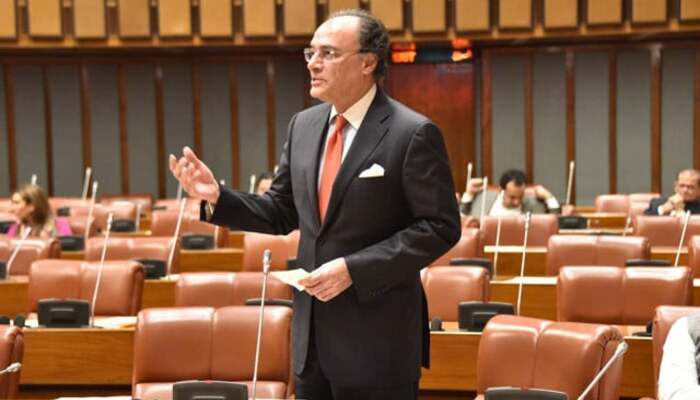The federal government, along with three provincial governments, has conditionally agreed on a new National Fiscal Pact (NFP). This pact fulfills a crucial requirement set by the International Monetary Fund (IMF). The agreement came after the Centre significantly modified the terms to address concerns raised by the provinces.
However, as of Monday night, the finance ministry had not confirmed whether Sindh had consented to the pact. This agreement serves as an alternative to the National Finance Commission (NFC). Interestingly, despite their public political stance, Khyber-Pakhtunkhwa (K-P) has accepted the pact but with specific conditions. The objections raised by Sindh led to significant changes in the draft.
Finance Ministry Spokesman Quamar Abbasi did not respond to questions regarding whether all provincial governments had signed the agreement. He also did not clarify if the draft memorandum of understanding (MoU) from July had undergone any changes. To build consensus, the finance ministry removed the condition requiring provinces to share expenses for the Benazir Income Support Programme (BISP). Additionally, the requirement for provinces to take over federal-funded projects now depends on the consent of the National Economic Council (NEC).
In a major concession to Sindh, any reduction in the size of the federal government will now be linked to consensus achieved through the Council of Common Interests (CCI). Officials reported that Punjab, Khyber Pakhtunkhwa, and Balochistan have conditionally agreed to the National Fiscal Pact, with Monday being the final day for all five governments to sign. However, no official confirmation has come from Sindh regarding their signing.
Existing NFC Framework
Under the existing NFC framework, provincial shares of federal taxes increased to 57.5%. Yet, the federal government still retained responsibilities related to provincial infrastructure, health, and education. Under the new pact, provincial governments will lose the ability to determine agricultural support prices. They must also amend agricultural income tax laws to raise taxes on small farmers to match federal personal income tax rates. The federal personal income tax can reach as high as 50%, while corporate rates stand at 29%.
It remains unclear if the IMF will accept the toned-down pact. The new agreement does not fully address expenditure issues concerning BISP and development projects. As part of its efforts to expand the tax base and reduce the federal expenditure burden, the IMF insisted that all five governments sign the NFP by September 30 and communicate it to the IMF headquarters the same day.
The NFP aims to replace the current NFC, which the government is hesitant to amend. There is a consensus between the military establishment and the federal government that the existing NFC leads to ongoing federal fiscal imbalance. While the government is eager to amend the Constitution for political gain, it shows reluctance to redefine the NFC for the economic viability of Pakistan.
Read: Malaysian PM Anwar Ibrahim to Arrive Pakistan Tomorrow
Punjab and Sindh Raise Objections
Punjab and Sindh, as major beneficiaries of federal spending, raised objections to the original draft of the fiscal pact. To address their concerns, the finance ministry revised the draft on September 25, coinciding with the IMF’s approval of Pakistan’s $7 billion bailout package. This package is contingent on implementing significant structural reforms.
In July, Punjab, Sindh, K-P, and Balochistan had signed an MoU with the federal government regarding fiscal responsibilities. The IMF had called for provinces to contribute more toward higher education, health, social protection, and regional public infrastructure. In turn, the provinces must enhance their tax collection efforts in sales tax, property tax, and agricultural income tax, though specific targets remain undefined.
Muzzammil Aslam, the Finance Adviser to the K-P chief minister, mentioned that the K-P cabinet raised questions about the amendments and received clarifications from the federal finance ministry. He emphasized the need for a ministerial committee to reach consensus and acknowledged the province’s commitment to the fiscal pact in the interest of the country. However, K-P reserves the right to take corrective measures if deviations occur.
The agreement stipulates that provincial governments must amend agricultural income tax regimes to align with federal personal income tax rates for small farmers by the end of October 2024. Taxation on agricultural income will commence from January 1, 2025, with collection starting in July 2025.
Justice Munib Akhtar Protests Exclusion from Supreme Court Bench
Moreover, provincial governments will transition the sales tax on services to combat tax evasion, implementing necessary administrative reforms. A common approach to property taxation will also be developed among the provinces. Importantly, the National Tax Council’s terms of reference will expand to include relevant tax measures.
Finally, it has been agreed that the provinces will stop announcing support prices for raw commodities and halt procurement operations. This new agreement represents a significant step toward addressing the fiscal challenges facing the country while seeking to satisfy the IMF’s requirements.
Follow us on Google News, Instagram, YouTube, Facebook,Whats App, and TikTok for latest updates
